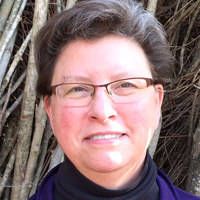This Just In –They’re trying to help. It’s a common, well-intended expression. You’ve had a death in the family or a serious medical event for someone you love and for whom you provide care. Your friends and family will say two things:
- Let me know what I can do to help
- Take care of yourself
Both of these expressions are usually heartfelt. We’d rather hear these offers than “Good luck with that. Sounds rough.”
The fact is, though, that our society has a peculiar expectation for women when it comes to care giving. Broadly speaking, taking care of a sick or disabled family member is viewed economically as a hobby. If you were very engaged in woodworking or painting, for example, you could be expected to spend money on raw materials and commit many hours working on projects for which you would gain only personal satisfaction and fulfillment, but never expect to get paid.
There are many differences, of course. If you had a hobby that woke you up in the middle of the night for a run to the Emergency Room, required that you be present for it or arrange for respite care so you could go grocery shopping or otherwise leave you utterly exhausted at the end of the day, you would give up that hobby.
These are all characteristics of care-giving for family members that our society looks away from. I took years out of my time in the work force to care for my end-stage in-laws (while they were living in my home). I had young children at the time, too.
If you looked at my Social Security records, you’d find that for about three years I had no quarters earned, because I was spending that time on my unpaid hobby – caring for my family.
At the end of my father’s life, I spent most of that month with him and my step-mother in their Florida home. This brings me back to the two offers – take care of yourself and letting your friends and family know how they can help.
That’s a tall order. In this case, what I did to help my step-mother in these areas was pretty simple. I showed up. I cooked sometimes, I sat with her as we talked through my father’s increasing dementia and declining health profile, I handled the task of communicating with our extended family (usually daily) and I endeavored to make sure that she had time away from the situation for activities she enjoyed.
When we care for our families, especially at the end of life, we can be reluctant to engage in conversations about the financial impact of the transitions that are coming. We can change that and we should.
Learning what we need to know is a critical part of taking care of ourselves. It can be overwhelming. When that moment comes and your brain can’t take in anymore, be sure you allow yourself to step back and refresh. It’s especially important when people are depending on you. It is not selfish.
When those well-intended offers of help come, have a list of things ready for people to do for you. Here are some things friends did for me when the going got rough:
- Brought a casserole (yes, really)
- Spent an afternoon doing laundry with me
- Brought groceries
- Spent an hour cleaning my house
- Sat in my living room being another responsible adult on hand while I took a nap
Finally, I don’t know how to get the Social Security system to recognize this, but it’s a fact: The years that I spent taking care of my husband’s parents might be described as a labor of love, but it was labor all the same. I have hobbies. They affect me very differently. This was strenuous, exhausting work, not play and I shudder to think what would become of us if the unpaid labor for this work, across our society, decided to simply refuse to do this work without compensation.
We can do better.
 Jean Bolduc is a freelance writer and the host of the Weekend Watercooler on 97.9 The Hill. She is the author of “African Americans of Durham & Orange Counties: An Oral History” (History Press, 2016) and has served on Orange County’s Human Relations Commission, The Alliance of AIDS Services-Carolina, the Orange County Housing Authority Board of Commissioners, and the Orange County Schools’ Equity Task Force. She was a featured columnist and reporter for the Chapel Hill Herald and the News & Observer.
Jean Bolduc is a freelance writer and the host of the Weekend Watercooler on 97.9 The Hill. She is the author of “African Americans of Durham & Orange Counties: An Oral History” (History Press, 2016) and has served on Orange County’s Human Relations Commission, The Alliance of AIDS Services-Carolina, the Orange County Housing Authority Board of Commissioners, and the Orange County Schools’ Equity Task Force. She was a featured columnist and reporter for the Chapel Hill Herald and the News & Observer.
Readers can reach Jean via email – jean@penandinc.com and via Twitter @JeanBolduc
Chapelboro.com does not charge subscription fees, and you can directly support our efforts in local journalism here. Want more of what you see on Chapelboro? Let us bring free local news and community information to you by signing up for our biweekly newsletter.


Comments on Chapelboro are moderated according to our Community Guidelines